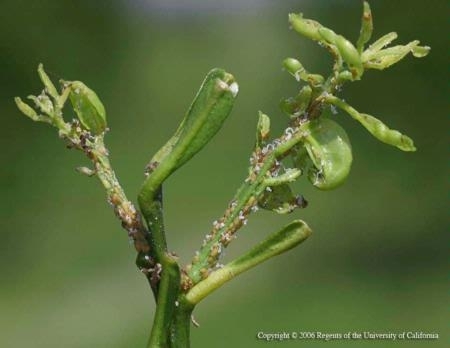
"We're really good at providing detailed information to researchers, agricultural commissioners, Cooperative Extension advisors, inspectors and border protection agents about what to look for and how to respond," said Beth Grafton-Cardwell, UC Cooperative Extension specialist in the Department of Entomology at UC Riverside. "We can reach thousands of people that way."
But with Asian citrus psyllid and Huanglongbing, "we're dealing with backyard situations, which is a whole new ballgame."
Campbell attended a conference in Davis last week focused on "Educating the public about new invasive species threatening California's plant ecosystems." Conference topics -- Huanglongbing disease, Asian citrus psyllid, light brown apple moth (LBAM), quagga and zebra mussels, European grapevine moth, sudden oak death, Japanese dodder, gold-spotted oak borer and red palm weevil -- were addressed by scientists, public officials, a public relations professional and a Sacramento Bee reporter.
"The public needs to be a partner in our efforts to respond to an invasive pest threat," said UC Davis post-doctorate researcher Margareta Lelea, who studied public reaction to LBAM treatments in Santa Cruz. "We need to figure out how we get to shared issues that the public cares about. The community has to be heard and feel like a partner in solving pest problems."